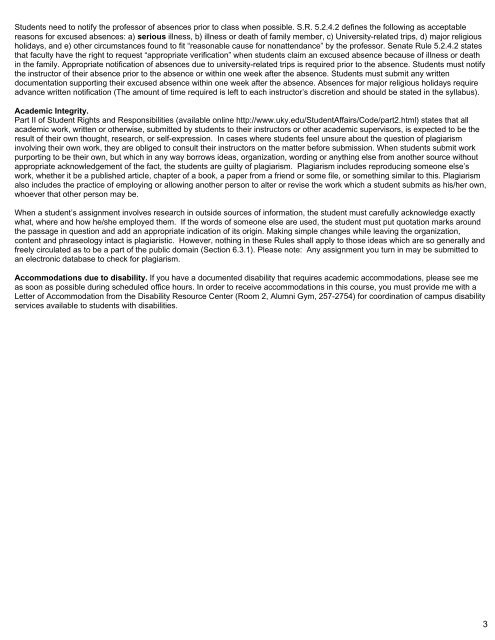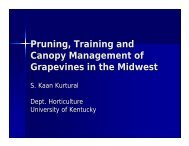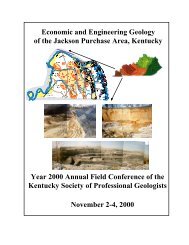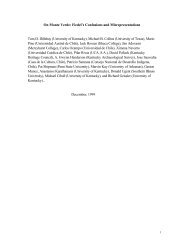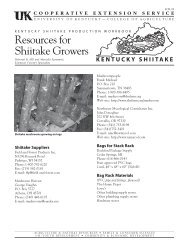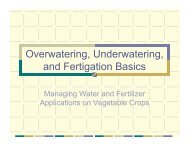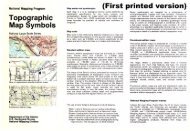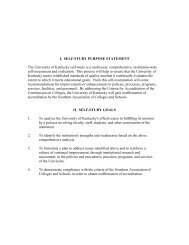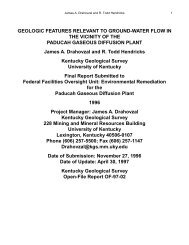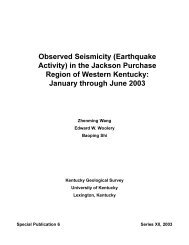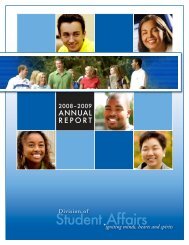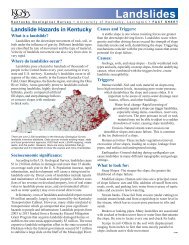C:\Users\Jon Stallins\Desktop\Concepts Syllabus.wpd
C:\Users\Jon Stallins\Desktop\Concepts Syllabus.wpd
C:\Users\Jon Stallins\Desktop\Concepts Syllabus.wpd
Create successful ePaper yourself
Turn your PDF publications into a flip-book with our unique Google optimized e-Paper software.
Students need to notify the professor of absences prior to class when possible. S.R. 5.2.4.2 defines the following as acceptable<br />
reasons for excused absences: a) serious illness, b) illness or death of family member, c) University-related trips, d) major religious<br />
holidays, and e) other circumstances found to fit “reasonable cause for nonattendance” by the professor. Senate Rule 5.2.4.2 states<br />
that faculty have the right to request “appropriate verification” when students claim an excused absence because of illness or death<br />
in the family. Appropriate notification of absences due to university-related trips is required prior to the absence. Students must notify<br />
the instructor of their absence prior to the absence or within one week after the absence. Students must submit any written<br />
documentation supporting their excused absence within one week after the absence. Absences for major religious holidays require<br />
advance written notification (The amount of time required is left to each instructor’s discretion and should be stated in the syllabus).<br />
Academic Integrity.<br />
Part II of Student Rights and Responsibilities (available online http://www.uky.edu/StudentAffairs/Code/part2.html) states that all<br />
academic work, written or otherwise, submitted by students to their instructors or other academic supervisors, is expected to be the<br />
result of their own thought, research, or self-expression. In cases where students feel unsure about the question of plagiarism<br />
involving their own work, they are obliged to consult their instructors on the matter before submission. When students submit work<br />
purporting to be their own, but which in any way borrows ideas, organization, wording or anything else from another source without<br />
appropriate acknowledgement of the fact, the students are guilty of plagiarism. Plagiarism includes reproducing someone else’s<br />
work, whether it be a published article, chapter of a book, a paper from a friend or some file, or something similar to this. Plagiarism<br />
also includes the practice of employing or allowing another person to alter or revise the work which a student submits as his/her own,<br />
whoever that other person may be.<br />
When a student’s assignment involves research in outside sources of information, the student must carefully acknowledge exactly<br />
what, where and how he/she employed them. If the words of someone else are used, the student must put quotation marks around<br />
the passage in question and add an appropriate indication of its origin. Making simple changes while leaving the organization,<br />
content and phraseology intact is plagiaristic. However, nothing in these Rules shall apply to those ideas which are so generally and<br />
freely circulated as to be a part of the public domain (Section 6.3.1). Please note: Any assignment you turn in may be submitted to<br />
an electronic database to check for plagiarism.<br />
Accommodations due to disability. If you have a documented disability that requires academic accommodations, please see me<br />
as soon as possible during scheduled office hours. In order to receive accommodations in this course, you must provide me with a<br />
Letter of Accommodation from the Disability Resource Center (Room 2, Alumni Gym, 257-2754) for coordination of campus disability<br />
services available to students with disabilities.<br />
3


